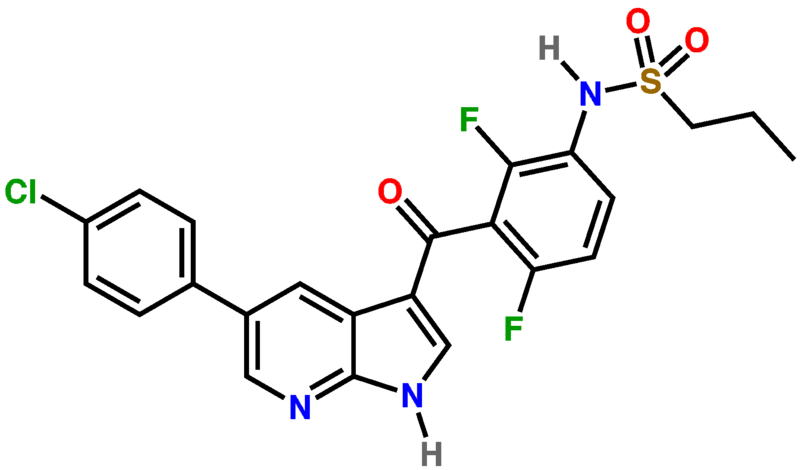Vemurafenib (Zelboraf) is a BRAF kinase inhibitor manufactured by Hoffmann-La Roche Inc., approved by the FDA for the treatment of unresectable or metastatic melanoma with the BRAF V600E mutation. This drug has been shown to be highly effective in patients with this specific genetic mutation, while cancer cells lacking this mutation do not respond to treatment. Conversely, the use of vemurafenib in patients without this mutation could even worsen the clinical picture.

The mechanism of action of vemurafenib is to inhibit the B/Raf/MEK/ERK pathway, by interfering with signaling pathways that promote the growth of tumor cells. The recommended doses for use are 960 mg twice daily, both with and without meals.
Comparative studies have shown that vemurafenib is significantly more effective than dacarbazine, another drug used to treat melanoma. Six-month survival with vemurafenib was 84%, compared with 64% for dacarbazine, whereas response to treatment was 48% for vemurafenib and only 5% for dacarbazine (p < 0.001).
Before initiating treatment with vemurafenib, it is essential to identify melanoma patients harboring the BRAF V600E mutation. To do this, the test called “4800 BRAF V600 Mutation Test” developed by Roche Molecular Systems is used.
The most common side effects of vemurafenib include arthralgias, skin rashes, alopecia, weakness, photosensitivity reactions, and nausea. In addition, squamous cell carcinomas and keratoacanthomas have been reported to occur in 24% of cases.
To further improve the effectiveness of the treatment and reduce side effects, combination treatments with ipilimumab, another drug approved for melanoma, are being tested. These combination therapies have demonstrated promising results in patient survival, opening up new perspectives for the integrated treatment of this serious oncological disease.